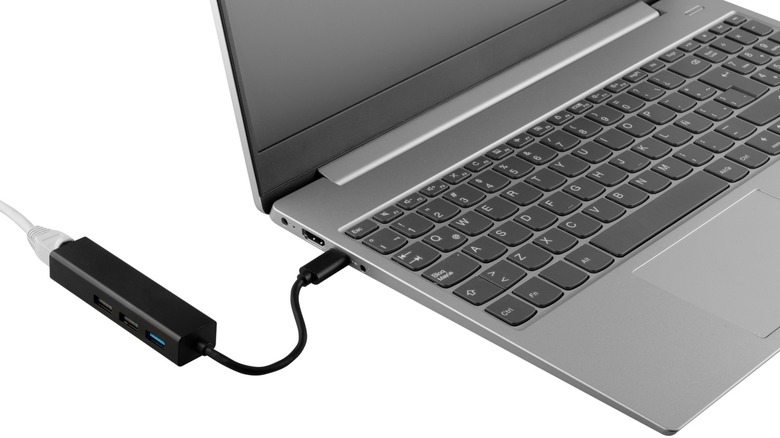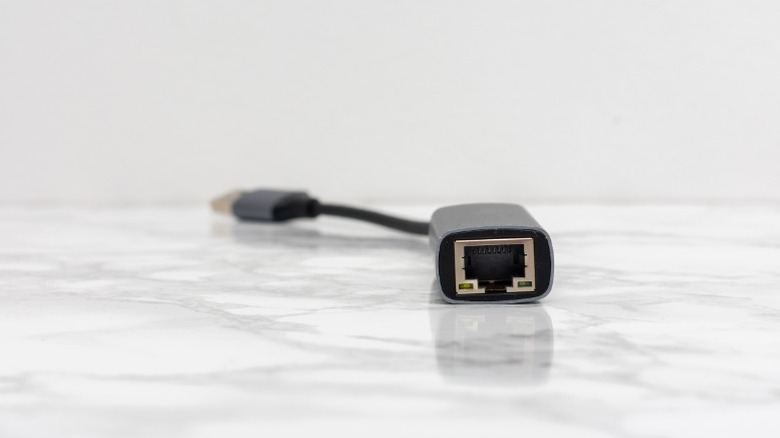Do USB To Ethernet Adapters Work Well? Here's What Users Have To Say
We may receive a commission on purchases made from links.
The median internet connection speed in the United States according to Ookla is just under 290 Mbps — which is plenty more than what most day-to-day operations on the internet ask for. This includes activities such as 4K video streaming, file downloads, and more. Some of the fastest Wi-Fi routers you can buy offer speeds up to 10,000 Mbps, and advancements in technologies like Wi-Fi 7 let modern smartphones and devices reap higher benefits.
Despite this, sticking to a wired Ethernet connection is almost always regarded as the wiser alternative — especially if your setup is stationary. Connections to the internet facilitated through Ethernet don't suffer from the occasional latency spikes, signal interference, or network congestion — elements that can haunt PC gamers the most. Desktop PCs and most gaming laptops feature an RJ45 port, which lets you connect to the internet at the best possible speeds, given you choose the right Ethernet cable.
This is, of course, assuming you haven't picked up a shiny new MacBook or a thin and light laptop that's skimped out on the Ethernet port. Are you now fully reliant on the Wi-Fi chip inside your machine? Fortunately, a quick search on Amazon yields several USB to Ethernet adapters — but how well do they work? Turns out, the right adapter can deliver Ethernet speeds up to 1,000 Mbps — which is actually the standard speed in most gaming laptops that feature gigabit Ethernet connectivity.
How reliable are these USB to Ethernet dongles?
With over 25,000 reviews and a 4.6-star rating on Amazon, the Ugreen USB to Ethernet Adapter isn't an expensive buy at $14.99 and offers speeds up to 1,000 Mbps. Reviews from customers suggest that the adapter lives up to its promise. Note that performance will depend heavily on the USB port on your device. USB 2.0 ports have a maximum theoretical bandwidth of 480 Mbps, while USB 3.0 and above support up to 5 Gbps. As long as you're plugging the USB to Ethernet adapter into the right port, you should have no problem reaping full gigabit speeds.
The quality of the dongle itself matters a lot, too. Sticking with name brands like Anker, Ugreen, and TP-Link is a good idea, even if they cost a little more than the other offerings. You can also pick up Ethernet adapters that connect via USB-C, which is convenient for laptops like the MacBook Air or Pro that don't feature full-sized Type-A ports. Most modern Android and iOS devices can also be hooked up to the internet via an Ethernet connection.
The consensus among verified buyers of these adapters is highly positive, and you shouldn't see a difference in speeds or reliability when comparing them to a built-in RJ45 port. Just be sure to check the speed rating and the USB version that the adapter features — the wrong dongle might leave you wondering why your Ethernet is slower than your Wi-Fi.

